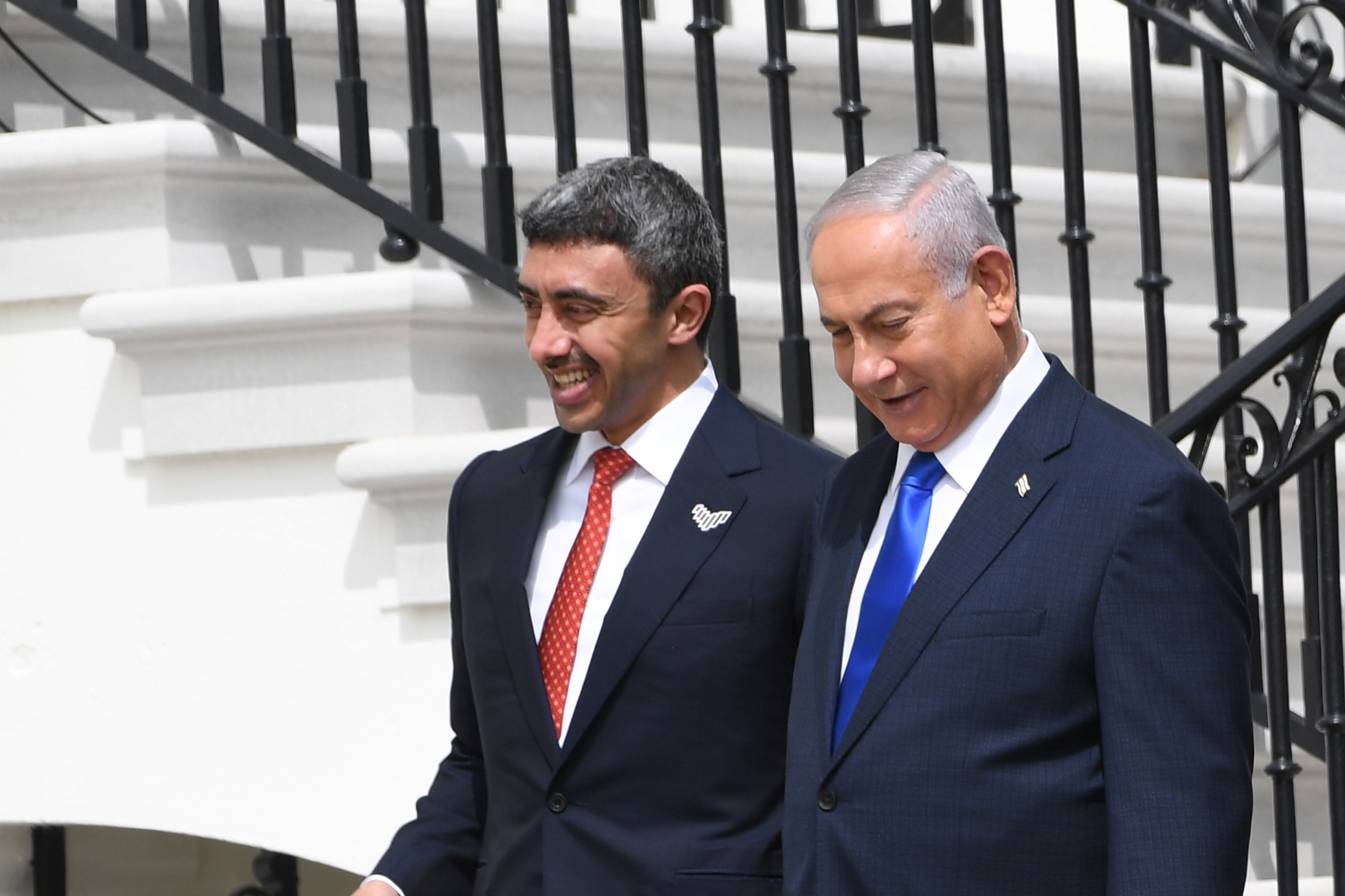Netanyahu to visit UAE next week in first trip post-normalisation

Israeli Prime Minister Benjamin Netanyahu said on Tuesday he planned to pay a three-hour visit next week to the United Arab Emirates and perhaps Bahrain, two countries that established formal ties with Israel last year.
Asked in a news briefing whether he would go ahead with a UAE visit next week despite the health crisis in Israel, Netanyahu said in remarks streamed live on his Twitter page: "We postponed the visit ... twice because of [coronavirus] lockdowns.
"It has great security, national and international importance, but it has been shortened, at my request, from three days to three hours."
Netanyahu said he would travel to Abu Dhabi and would also "possibly make a lightning visit to Bahrain" during the brief trip.
He did not give a specific date, but Israeli media reports said he would make the trip on 9 February.
New MEE newsletter: Jerusalem Dispatch
Sign up to get the latest insights and analysis on Israel-Palestine, alongside Turkey Unpacked and other MEE newsletters
UAE ambassador to Washington Yousef al-Otaiba had announced the trip on Monday, saying the Israeli premier would "be visiting us very soon".
"Unfortunately his trip had gotten cut a lot shorter because of the corona situation, but he should be coming to see us next week."
Netanyahu had previously scheduled visits to the Emirates, however, they were delayed due to political turmoil in Israel and also the coronavirus pandemic.
The UAE, along with Bahrain and Israel, signed a US-brokered agreement to normalise ties in September during a ceremony at the White House in Washington DC.
The agreements, known as the "Abraham Accords", shattered a longstanding Arab consensus that there should be no normalisation with Israel until it reaches a comprehensive peace deal with the Palestinians.
Last week, the UAE announced that it had approved the establishment of its first embassy to Israel in Tel Aviv, and Israel also announced the opening of an embassy in Abu Dhabi.
Israel has also assigned its former ambassador to Turkey, Eitan Na'eh, as the country's top diplomat to the Emirates.
Still, Abu Dhabi is not following the US in establishing its embassy in Jerusalem, a move that gives legitimacy to Israeli claims of full sovereignty over the city.
Former President Donald Trump opened the new US embassy in Jerusalem in May 2018, recognising the city as the capital of Israel. Palestinians have long claimed East Jerusalem, which was conquered by Israel in 1967, as the capital of a future Palestinian state.
US President Joe Biden said he would not be moving the embassy out of the city.
Middle East Eye delivers independent and unrivalled coverage and analysis of the Middle East, North Africa and beyond. To learn more about republishing this content and the associated fees, please fill out this form. More about MEE can be found here.





